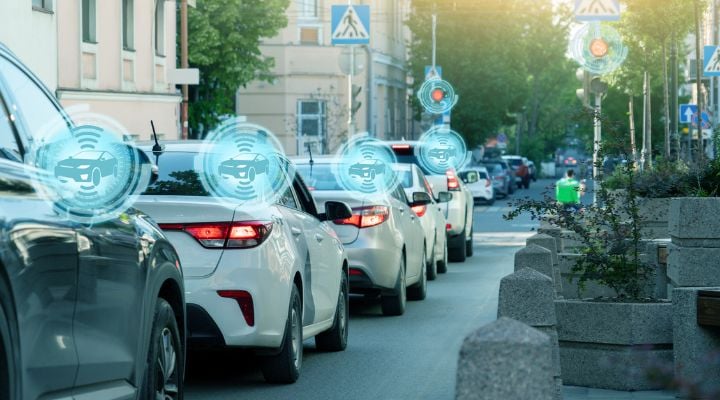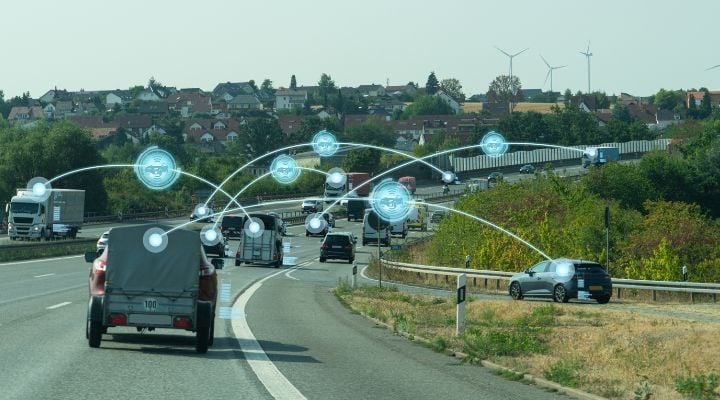V2X: Why is Privacy still such a Burning Issue?
The Vehicle-to-Everything (V2X) sector has undoubtedly made great strides over the last quarter of a century – so how come privacy is still such a bone of contention? The International Road Federation’s (IRF Global) ITS Committee Co-Chair Brian Hoeft, Executive Committee member Dr. Rob Jaffe and Senior Adviser Nina Elter shed some much-needed light on the subject.
Intertraffic: After 25+ years of V2X (in different guises), why is privacy still such a huge issue?
IRF: The enduring concern over privacy in V2X technology stems from various factors. Firstly, privacy has been a longstanding issue, preceding Intelligent Transportation Systems, as people are wary of how their data, such as location, will be utilized. Individuals exhibit a spectrum of responses to privacy, ranging from staunch refusal to disclose any information to those who believe they have nothing to hide. This spectrum is evident in the mobile phone industry, where some opt for "burner" phones to mitigate tracking, while others willingly share their location data for benefits like real-time navigation.
In the context of V2X, privacy concerns persist due to the perception of potential surveillance by government and corporations. While V2X technology is designed to protect privacy by using random identifiers and limiting data sharing, certain applications may necessitate disclosing personal information. For instance, collision avoidance systems typically require minimal data exchange, while functions like vehicle charging may entail sharing credit or debit account details, thereby revealing user identities to service providers.
Overall, the challenge lies in balancing the benefits of V2X technology with the need to safeguard individual privacy, considering the diverse range of attitudes towards data disclosure.
While V2X technology is designed to protect privacy by using random identifiers and limiting data sharing, certain applications may necessitate disclosing personal information

Intertraffic: What do you consider to be the most pressing "bones of contention"?
IRF: The primary bone of contention regarding privacy in the automotive industry revolves around the fear and lack of trust in government and big business, perpetuated by media sensationalism. Despite the convenience offered by data-sharing technologies, consumers remain wary, perhaps due to the inherent mystique of cars as vehicles of escape. While privacy concerns persist, especially among "privacy hawks" (or the ones that don’t want a particular trip to be known about), most users are willing to trade some privacy for convenience, provided there is transparency and limited data collection for specific services.
Effective communication and education are essential in addressing these concerns, ensuring users understand what information is shared and for what purpose, thereby alleviating perceived privacy infringements.
Effective communication and education are essential in addressing these concerns, ensuring users understand what information is shared and for what purpose
Intertraffic: Whose responsibility is it to address and eventually overcome this hurdle?
IRF: Well, it seems like expecting the government to swoop in and fix these privacy concerns might be a bit optimistic. Government agencies can often be slow-moving and tangled up in bureaucracy, not to mention the constant scrutiny from elected officials, the public and the media.
It might just take time for the concerns around individual vehicle privacy to fade away. Maybe in another 10 years or so, people will be less worried about it. But for now, it looks like the responsibility falls more on industry players and maybe even individual consumers to find ways to address and alleviate these worries.
Intertraffic: Presuming that it's a matter of data, is this a global issue, a European issue or do individual countries have varying levels of concern?
IRF: There are probably varying levels of concern. Where services are provided on a global scale, it’s a global issue. Where the services are local, it’s a local issue.
Countries like the US, with a strong emphasis on individual freedoms and a historic distrust of government, are likely to express higher levels of concern. Conversely, developing nations may have fewer reservations and may appreciate the benefits of data and V2X technology more readily, especially considering the novelty of such advancements in their contexts.

Intertraffic: How can you (and do you) advise road authorities to prepare for a more autonomous future?
IRF: To prepare for a more autonomous future, it’s recommended that road authorities focus on ensuring the foundational elements of transportation networks are solid. This includes having the necessary technology for sensing, operational control, and communication networks in place. Additionally, maintaining road infrastructure to withstand various conditions, like inclement weather, is crucial. Once these basics are covered, attention can shift to advanced topics like autonomy and connectivity.
To prepare for a more autonomous future, it’s recommended that road authorities focus on ensuring the foundational elements of transportation networks are solid
In terms of privacy, it's essential to only collect data necessary for specific use cases. When personal information is required, employing standard security measures such as encryption, authentication and access controls is crucial. This limits the distribution and access of personal data to what's absolutely necessary for providing the service. Leveraging the expertise and resources of major tech companies like Google and Amazon can also help shoulder the burden effectively.
But beyond all that, communication and education are key. People need to understand what's happening with their data and why. Sometimes, just clearing up misconceptions can make a big difference. Plus, highlighting the safety benefits of sharing a bit of info can help everyone feel more comfortable with the idea. After all, ensuring our loved ones make it home safe is worth a little trade-off in privacy, right?
Thanks to Nina Elter, Senior Advisor, IRF Global, for her assistance with this article





